Dr Francis Collins was at the forefront of the fight against Covid-19 and believes his team’s record-breaking development of vaccines was an answer to prayer. But not all Christians agreed, and he quickly found himself being targeted by some US evangelicals and conspiracy theorists. He tells Sam Hailes how faith sustained him – and why truth matters in a politically divided age
Having successfully sequenced all 3 billion letters of our DNA and opened the door to treating rare conditions such as cystic fibrosis, Dr Francis Collins was already considered one of the greatest scientists of his generation.
Then came Covid-19.
When this magazine last interviewed Collins in 2020, he was starting each day with prayer and Bible reading, before joining his colleagues in the desperate search for a vaccine to combat the worst pandemic in a century.
Almost five years after the fateful November evening when the effectiveness of the Moderna vaccine was confirmed, we speak again. The news on that night had been better than Collins could have ever dreamed – the vaccine was 95 per cent effective in preventing severe disease and 100 per cent effective against death.
The lightning-fast creation of Covid vaccines is an achievement Dr Collins believes will be judged as one of the greatest medical achievements in human history. Most Rev Justin Welby, then-Archbishop of Canterbury, described it as “an answer to prayer”. And yet Collins has not been universally praised by his fellow Christians. Many US evangelicals not only declined the vaccine but also accused Collins of overstepping his remit by urging church leaders to recommend them from the pulpit. Some worried he was colluding with the US government in backing lockdown mandates which forced churches to temporarily close their doors.
Such criticisms were hard for Collins to hear. But more outlandish claims were to follow. Collins fast became a figure of hate among Covid conspiracy theorists. The most notorious of all – Alex Jones – even confronted Collins in an airport, filming himself making one of the most unhinged accusations you’re likely to find on in the internet: “How does it feel to kill more people than Hitler?”
I even heard speculation that the vaccine was the mark of the beast
The mild-mannered scientist was understandably taken aback. But rather than fight fire with fire, he’s mostly kept his counsel (“you might as well stay quiet and hope it passes”). Today, his overriding emotion seems to be bafflement at how Christians – who claim to be people of love and truth – can not only fall for fake news, but respond with such vitriol towards those they disagree with.
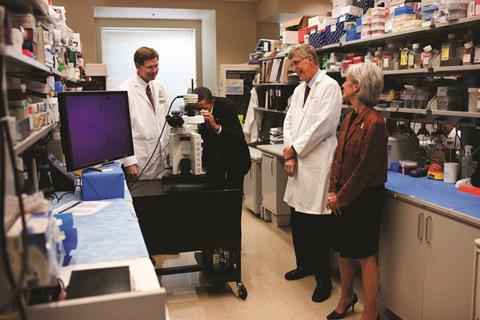
We last spoke during the Covid pandemic, and we headlined the interview ‘the Christian scientist searching for a Covid-19 vaccine’. Well, you found one! Can you explain why that was such a monumental achievement?
Until Covid, no vaccine against a threatening infectious disease had ever been developed in less than five years. Many of them took ten or 15 years.
We were faced with the worst pandemic in more than a century, and a vaccine was our best hope to save lives. People have forgotten how awful it was – because we suppress these things – but the morgues were so full, they had to bring in refrigeration trucks to handle all the dead bodies. It was like a nightmare.
We built upon mRNA technology, which had been under development for 25 years. It seemed like the best bet, because you only needed to know the letters of the genome sequence. Those were released on 10 January 2020 by the Chinese. Within 48 hours, the vaccine had been designed by our scientists. It went through testing in animals, a phase one human trial, then a big trial of 30,000 people, half of whom got the vaccine, half of whom got a dummy shot.
Late November in 2020, on a night I will never forget, the blinding was taken off so you could see who had got the vaccine. And, oh my gosh, it was so much better than we dared to dream.
As a person of faith, I had prayed about that for the entire year, and science had turned out to be the way in which those prayers were answered. It is estimated between 14 and 20 million lives were saved across the world.
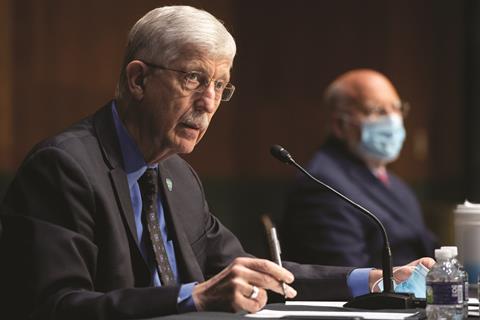
How did you look after yourself when you were working 100-hour weeks?
Standing on the rock of my Christian faith saw me through the storm.
I would wake up, often after a short night, and the first thing I would do was pray and read of a bit of scripture to get myself grounded in what is really true and what we’re called to do as children of God. That would be the place I would go to when things started falling apart.
It was a challenging year, but it was an amazingly inspiring year. Everybody wanted to do everything they could to save lives – and that taught me some really important lessons about goodness and the nobility of humanity when given the chance to show itself.
Vaccination was freely available in the US and UK. But more than 50 million adult Americans declined it, including millions of evangelicals. Did that take you by surprise?
It did, and I found it pretty heartbreaking. But the tensions between evangelical Christians and science have been there for 200 years, maybe going back to Darwin.
There were all kinds of rumours and conspiracies flying around, especially on social media, about whether the vaccines made you infertile, or had chips in them that allowed Bill Gates to track you – and some people were susceptible to that. I even heard speculation about whether the vaccine was the mark of the beast.
Over time, as the virus mutated, and we got Delta and Omicron, the vaccine was less effective. When people started to hear you could still get Covid, they began to question whether there was something else going on. I will be honest, as one of the people doing the science communication, I think we could have done a better job of explaining this.
We are allowing our sense of truth to be overtaken by political views, and it breaks my heart
There’s now this terrible tragedy that is pretty well documented: in the US, 234,000 people died unnecessarily because of resistance to taking the vaccine. That’s an astounding number of gravestones that didn’t have to be there.
This was the impetus for your new book, The Road to Wisdom. When people believe things which aren’t true, it can be a matter of life and death.
Yes. It’s one thing to debate a political opinion, but this was about scientific fact. This is a real wake-up call for our society. If we’ve gotten to the point where it’s OK to say “that might be true for you, but it’s not true for me” about an established fact, we’re in trouble. We’re called as Christians to be people of love, but also people of truth. So, I felt I had to write about it.
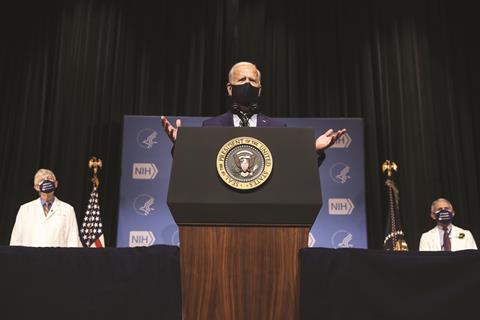
You’ve been attacked by conspiracy theorists who have literally tracked you down in public places and filmed themselves verbally abusing you. What is it like to experience that?
It’s disheartening. I spent pretty much my whole life as a scientist, a physician, working in public service in a way that hasn’t been particularly financially beneficial. To then be accused by people who have a big following – you really have no recourse in terms of defending yourself. You may as well just try to stay quiet and hope it passes. That’s included physical threats to myself, to my wife, my daughters. At least one person is in jail as a result.
It’s unimaginable in a country like the United States that these things could be happening. It’s almost normalised now. What’s happened to us? Where is our compassion? Where are the foundations of what we are supposed to be about: love, goodness, beauty, family, freedom and justice? We all say we believe in those things, but the aberrations are more and more apparent.
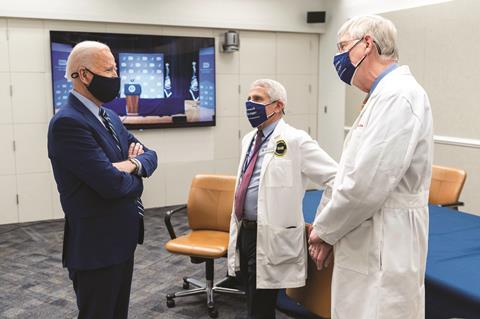
Some Christians argued it was morally wrong for the government to insist churches close their doors during the pandemic, as it contradicts the principle of religious freedom. Do they have a point?
Our responsibilities during a pandemic are not just about ourselves, they’re about other vulnerable people as well.
If going to a public gathering is increasing the number of new cases and making more people sick, then it’s not, from a Christian perspective, a loving thing to do. You are loving your neighbour by not going to a public gathering, including church. But it isn’t always a popular argument.
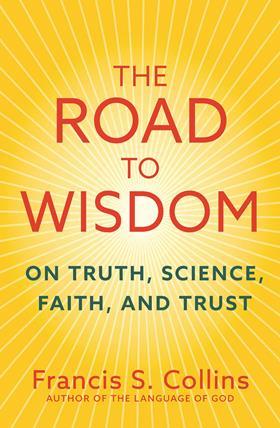
There was also criticism that you urged pastors to tell their congregants to get the vaccine. Isn’t it an abuse of the pulpit to use it for anything other than communicating the gospel?
It was never a political issue. It was a scientific and medical issue, and I do think it’s appropriate for pastors to worry about the health of the people they care for. They’re doing this all the time, visiting people in hospitals, encouraging people to stay healthy in other ways.
Everything at that point became so political that even a Christian like myself, trying to relay information about what the science said about vaccines, was seen as inappropriate. I served three presidents from two different parties. I was never in a circumstance where I thought I was being a political animal. I was trying to be a doctor.
It perhaps speaks to the divisive times that we live in, that everything is seen as political.
Exactly. Almost every issue comes down to: What does my tribe say about that? And if my tribe has a point of view, I’ll probably accept that without checking the background evidence for it. If it’s a point of view coming from that other tribe, I’m going to immediately consider it as unlikely and something I don’t want to accept.
We are allowing our sense of truth to be overtaken by political views, and it breaks my heart – particularly in people of faith, who should be in the best position to resist mean-spirited politics. How is it that so many Christians now seem to be people of anger, resentment and acrimony? We should be people of love, not just for our neighbours, but for our enemies as well. That’s what we’re called to do.
I was never being political. I was trying to be a doctor
The one part of the Bible I try to read at least once a week is the Sermon on the Mount. If you haven’t done that in a while, read Matthew 5-7. Look at every sentence, every word, and ask yourself: “How are we doing in that exhortation?” Right now, we are falling so short.
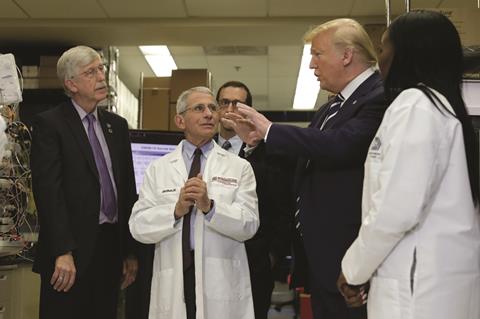
Do you have much hope that Western societies can get back on this road to wisdom?
I’ve thought about this a lot. Can we imagine a change in our political environment where leaders actually listen to and respect each other? I don’t see any sign of that. I also don’t see it coming from the media. Most media outlets have taken sides. So where is it going to come from? I think it has to come from we the people.
I’m challenging everyone who reads the book to also sign a pledge to be part of the solution. That means reaching out to people who do not agree with you on a topic. Invite them for coffee, or a glass of wine, and say: “Tell me your view. I want to understand where you’re coming from.” Maybe we could then have a conversation, like people who want to be friends, [rather than] tearing each other down.
The other thing is: look carefully at how you’re taking on board information. Can you stick to what is based on evidence? And recover what Jesus calls us to be – people of goodness, love, truth? I think Christians ought to be at the front of this. Jesus calls us to be the peacemakers.
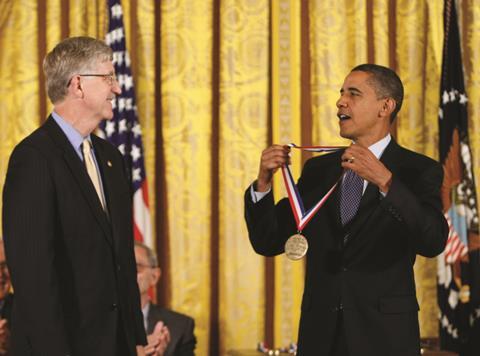
It seems institutions, politicians, scientists, the media are no longer trusted. How should we decide who to trust?
One aspect is integrity. Is this a source that’s honest and that has a track record of telling things straight?
Secondly, expertise. Do they have the knowledge? Have they done the work? So many people have become sceptical of anybody who identifies as an expert. But at the same time, there’s something a little ridiculous about this. If your car breaks down, you’re going to take it to a mechanic who’s an expert in how to fix it. You’re not going to go to your next-door neighbour. Yet somehow people imagine that: I spent an hour on Google, so I’m now an expert, and I can basically say I’m smarter than this other person who spent the last 25 years studying this full-time and has written multiple papers about it. That betrays a certain amount of hubris, doesn’t it?
The third one, which maybe gets forgotten about, is humility. Are they able to say: “I’m an expert on this thing, but if you ask me about that other thing over there, I’m going to say you should ask somebody else.” Anybody who claims to be an expert on everything is probably an expert on nothing.
To hear the full interview listen to Premier Christian Radio at 8pm on 15 November or download ‘The Profile’ podcast












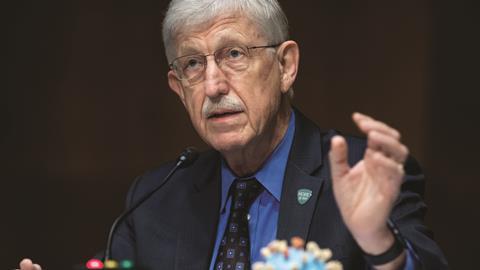

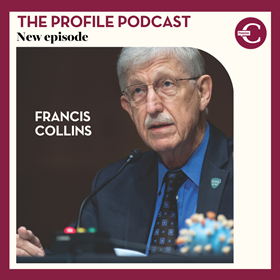
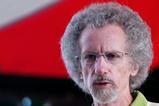
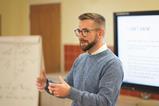






















3 Readers' comments